Ahead of a White House meeting on the Ebola outbreak, federal health officials said Monday the U.S. is weighing whether to institute extra screening at U.S. airports where travelers from Ebola-stricken African nations may be arriving.
Officials were mulling the screenings as the BBC reported that the first case of a person contracting Ebola outside of the African continent had occurred. A Madrid nurse who was a member of the team that treated Spanish priest Manuel Garcia Viejo tested positive for the virus. Viejo died of Ebola on Sept. 25.
How likely is it that extra screenings will occur?
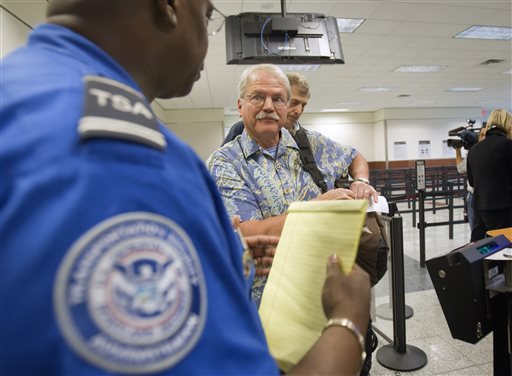
Photo: AP/David Goldman
Dr. Anthony Fauci, director of the National Institute of Allergy and Infectious Diseases, said “all options are being looked at.” The question, Fauci told CNN, is whether “the extra level of screening is going to be worth the resources you need to put into it.”
“There is clear-cut screening going on in the exit end,” Fauci said, referring to the screening of outbound passengers before they leave Ebola-affected countries. The current U.S. discussion, he said, centers on “what kind of screening you do on the entry end. That’s something that’s on the table now.”
Officials are seeking a balance between “the benefit of doing that and resources required,” Fauci told The Associated Press on Monday.
What a U.S. airport Ebola screening might entail:
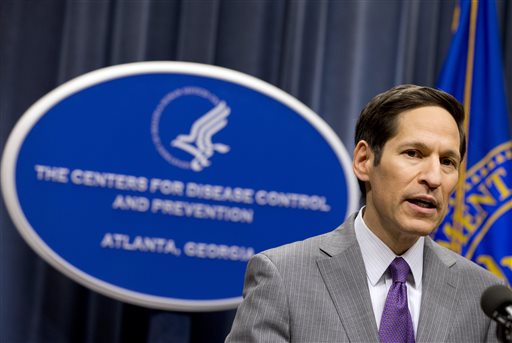
Director of Centers for Disease Control and Prevention Dr. Tom Frieden. Photo: AP/John Bazemore
Dr. Tom Frieden of the Centers for Disease Control and Prevention, said officials are looking at all options “to see what we can do to increase safety of all Americans.” Extra screening might include checking travelers to see if they have a fever, then evaluating them further if they do, he said.
Frieden said about 40,000 people had come to the U.S. from various African countries over the past six months, including Americans returning from travels there.
Where the U.S. stands with Ebola:
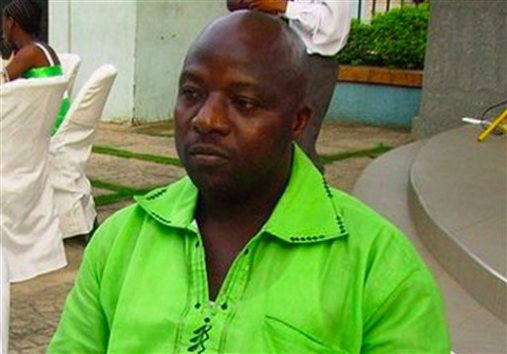
Thomas Eric Duncan, the first patient diagnosed in the U.S with Ebola, has been kept in isolation at a hospital since Sunday, Sept. 28, 2014. Photo: AP/Wilmot Chayee
Five Americans have returned from Africa to the United States for treatment since the start of the latest Ebola outbreak, which the World Health Organization estimates has killed more than 3,400 people. A Liberian man with Ebola who started showing symptoms while visiting the U.S. is in critical condition at a Dallas hospital.
The Obama administration said that it will not shut down flights from affected countries, particularly those in West Africa. Fauci reiterated that such a travel ban could end up spreading the epidemic in those countries, making it harder to get aid in, for instance, and further isolating them from treatment.
Addressing the White House meeting, Frieden told “CBS This Morning,” “We’re going to be covering many aspects and figure out what we can do” to protect Americans and stop the outbreaks. He added that he was encouraged by ongoing vaccine trials.
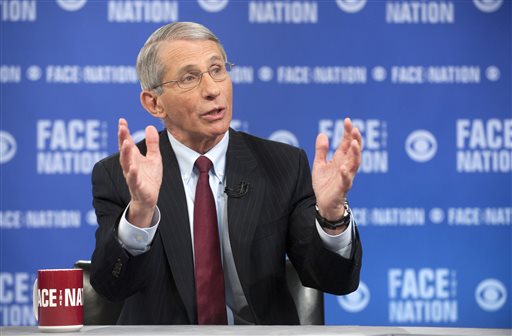
The National Institute of Health’s Dr. Anthony Fauci, the nation’s top infectious disease expert. Photo: AP/CBS News, Chris Usher
Fauci noted that the supply of the experimental drug known as ZMapp, which may have helped the two American health workers who caught Ebola while working in Liberia, is gone. He said federal officials were helping the drug manufacturer with efforts to boost manufacturing, but that it would be up to two months before any more of the drug is available. Moreover, tests on potential vaccines or treatment drugs need to be done to prove that a drug works.
Frieden said he doesn’t believe the disease is going to spread widely in the United States. “We can stop it in its tracks here, which we are doing,” he said.
The U.S. military is beginning work in the Liberian capital Monrovia on the main structure of a 25-bed clinic that will treat health care workers infected with Ebola. The U.S. has also promised to build 17 other Ebola treatment centers, which would have space for 100 patients each.
President Barack Obama is scheduled to get an update on the Ebola outbreak Monday afternoon from his national security team and other senior officials.
This report was compiled with information from the Associated Press.
For more on the Ebola epidemic, CCTV America spoke with Stephen Morrison, the director of global health policy from the Center for Strategic and International Studies in Washington D.C.

The Ebola epidemic in West Africa reaches extreme crisis levels.
Health workers in the region are barely keeping up with the virus. CCTV’s Sean Callebs reports.

 CGTN America
CGTN America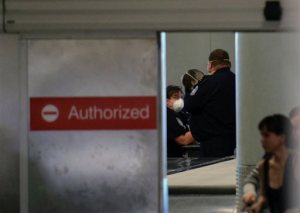 Masked customs officers look on during a screening area for international passengers from United flight 998 from Brussels at Newark airport in Newark, N.J., Saturday, Oct. 4, 2014. New Jersey health officials say Ebola has been ruled out as the cause of illness for a man who became sick on a flight from Brussels to the United States (AP Photo/Northjersey.com, Viorel Florescu)
Masked customs officers look on during a screening area for international passengers from United flight 998 from Brussels at Newark airport in Newark, N.J., Saturday, Oct. 4, 2014. New Jersey health officials say Ebola has been ruled out as the cause of illness for a man who became sick on a flight from Brussels to the United States (AP Photo/Northjersey.com, Viorel Florescu)
